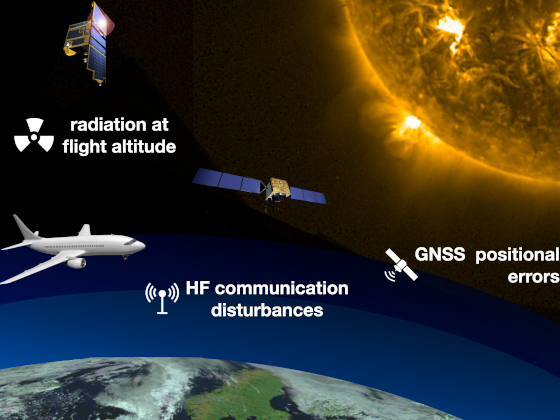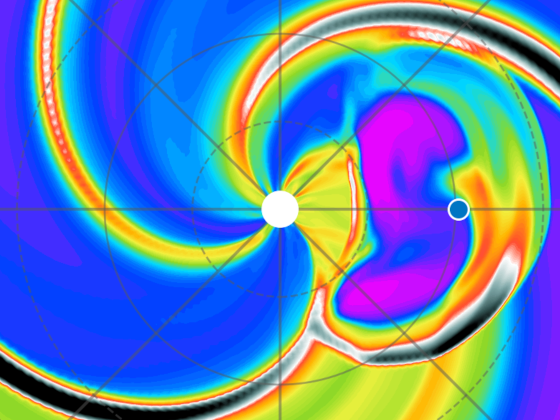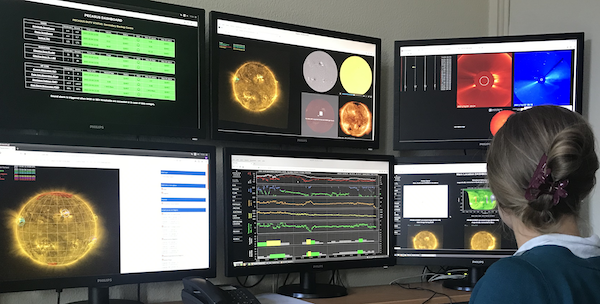The Sun continuously emits energy into space. That energy emission by the Sun is variable and hence shapes a variable space environment which also impacts the Earth's atmosphere and magnetosphere. The influence of solar variability on time scales less than a month is called 'space weather' whereas the influence of solar variability on much longer timescales is called space climate. The SIDC operates a space weather and space climate service centre which preserves long time solar data series and monitors and forecasts solar activity 24/7.

Space Weather
Fundaments & background
The SIDC, also known as the Solar Physics Department of the Royal Observatory of Belgium, became the World Data Center (WDC) of the Sunspot index in 1981. It was founded to continue the work of the Zürich Observatory (see e.g. Wolf, 1868) and is since then responsible for the calculation and preservation of the International Sunspot Number.
In subsequent years, the SIDC became a major player in Europe’s operational space weather monitoring and forecasting infrastructure. The SIDC was granted the status of Regional Warning Centre Brussels in 2000 in the framework of the International Space Environment Services (ISES). The SIDC provides daily space weather activity reports and forecasts (URSIGRAMs). Since a few years, the SIDC hosts the directorship of ISES.

Space Weather Modeling
International collaborations
Since 2003, the SIDC contributes to the emerging space weather program of the European Space Agency (ESA). Currently, the SIDC hosts the SSA Space weather Coordination Centre (SSCC), the service desk of the Space Weather Service Network, developed within the ESA Space Safety Program (S2P), as well as the Solar Weather Expert Service Center within that same network.
End 2019, the SIDC was a founding member of the European PECASUS network to provide space weather services for the International Civil Aviation Organisation (ICAO). Together with the STCE partners, the SIDC is the central advisory production hub in the PECASUS network.

Space Weather Room
Perspective for the future
The SIDC intends to continue to play an active, leading role in the European space weather landscape and provide state-of-the-art data services.
The centre therefore invests strongly in scientific research and observations as a firm basis of its services and operations. We strive to continuously improve and monitor the accuracy/quality of our space weather predictions and solar indices, primarily the International Sunspot Index. And we continue to improve our data processes which produce, archive and distribute our data and indices through utilizing state-of-the-art processing pipelines, data bases and interfaces.
All of this is aimed at providing high level space weather bulletins and solar activity predictions to industry, research institutes, space-related organisations and to the wider community. Such services are becoming increasingly important as our our modern society depends ever more on space technologies.